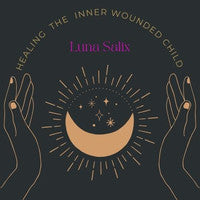Abuse Restoration
5 Scientific Reasons Why Abuse Survivors Are Fat
There're many misconceptions not just about why survivors stay in abusive relationships, but also about how trauma affects the body. This combined with the pressures of diet culture and impossible beauty standards mean survivors, especially female survivors, the ones who also have to deal with the patriarchal idea of beauty and sex as the most important qualities a woman has, are the largest victims of this triangulation.
I am here to debunk some myths.
10 Most Common Misconceptions About Boundaries
1. Withdrawal from socialisation is boundaries.
2. Boundaries are a sign of distrust.
3. Hyper vigilance is boundaries.
4. Boundaries is about selfishness and selflessness.
5. Being stressed out isn't a lack of boundaries.
6. Boundary setting is a one time event.
7. Boundary setting is betraying someone or a group.
8. Boundaries require aggression to keep.
9. Boundaries is lack of empathy.
10. Everyone want boundaries.
Caroline Flack's Ex Donates To Trans Charity Mermaids, When Transition Increases Suicide Rates
Caroline Flack's ex-fiance Andrew Brady is asking people to donate to Mermaids, a UK charity that despite many warnings by feminists, gender critical men and women alike, have chosen to ignore the possibility of undiagnosed autism, permanent sterilisation and irreversible surgery.
In Mermaids's unyielding push to advocate transition as a solution for transgenders, they have blatantly ignored scientific research behind transgender's long term health, including suicide rates.
The most thorough follow-up of sex-reassigned people—extending over 30 years and conducted in Sweden, where the culture is strongly supportive of the transgendered—documents their lifelong mental unrest. Ten to 15 years after surgical reassignment, the suicide rate of those who had undergone sex-reassignment surgery rose to 20 times that of comparable peers.
5 Common Misconceptions About Self Esteem
After speaking to thousands of people over the span of 4 years about self esteem, reading piles of psychological data, researching on society attitudes about esteem, I didn't meet a single lay person who got it right, I even encountered many mental health professionals and life coaches who got it wrong. The result stunned me, how could this be?
I wanted to help abused women and men, I ended up uncovering much larger social attitudes towards esteem instead, there are my findings.
1. Confidence and esteem are mutually exclusive.
2. Esteem isn't assertiveness.
3. Success isn't a sign of high esteem.
4. Ambition isn't a sign of high esteem.
5. The ability to help people isn't a sign of high esteem.




